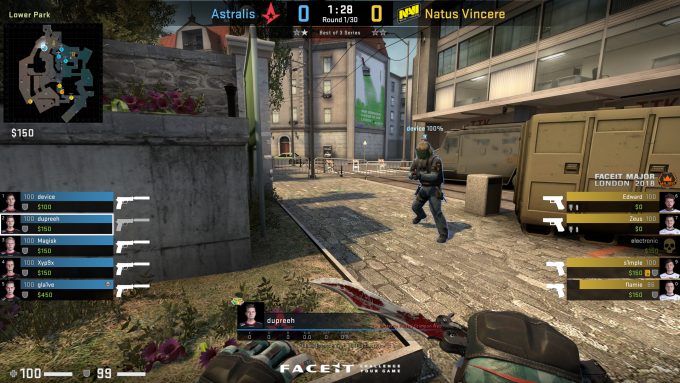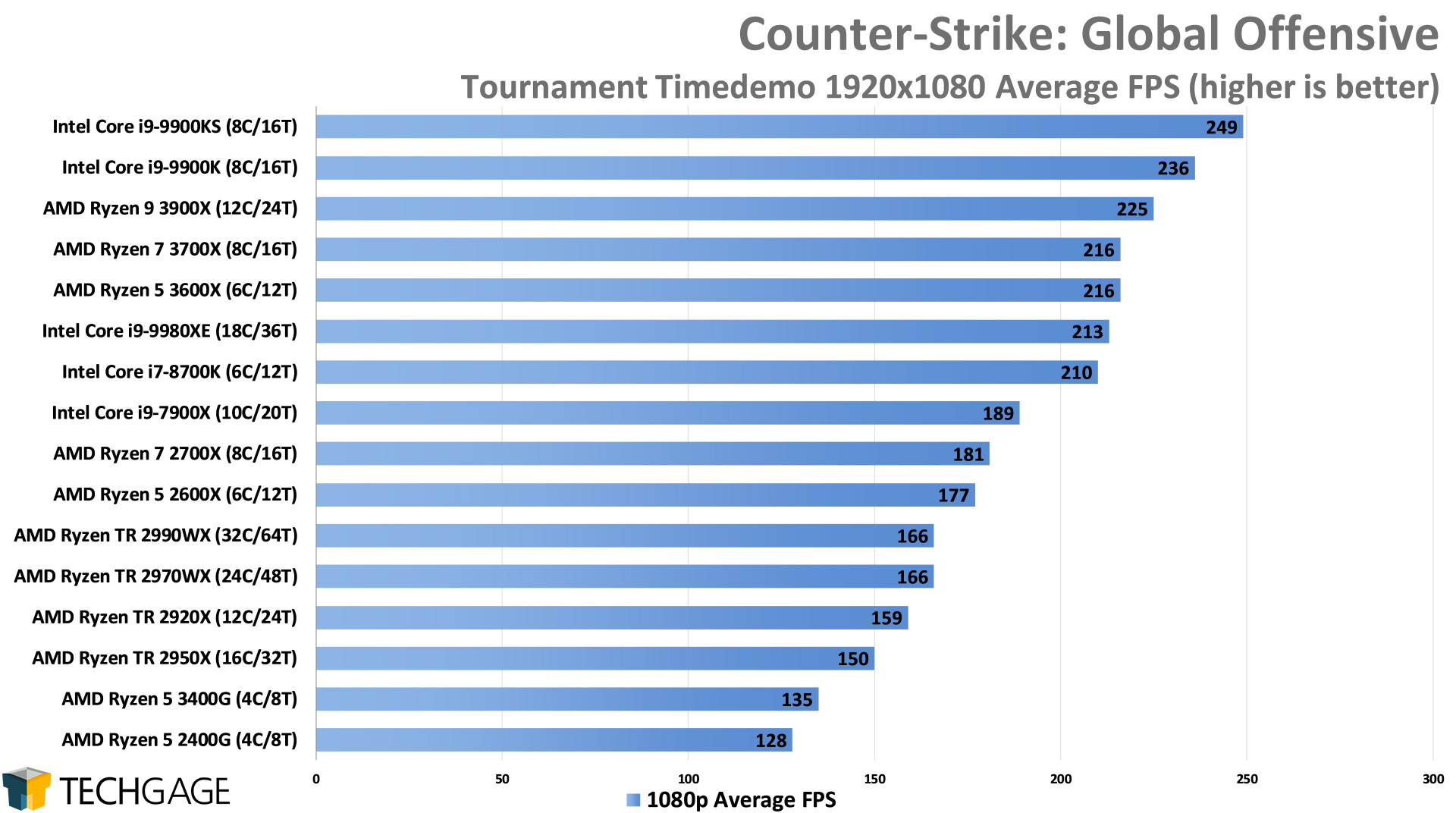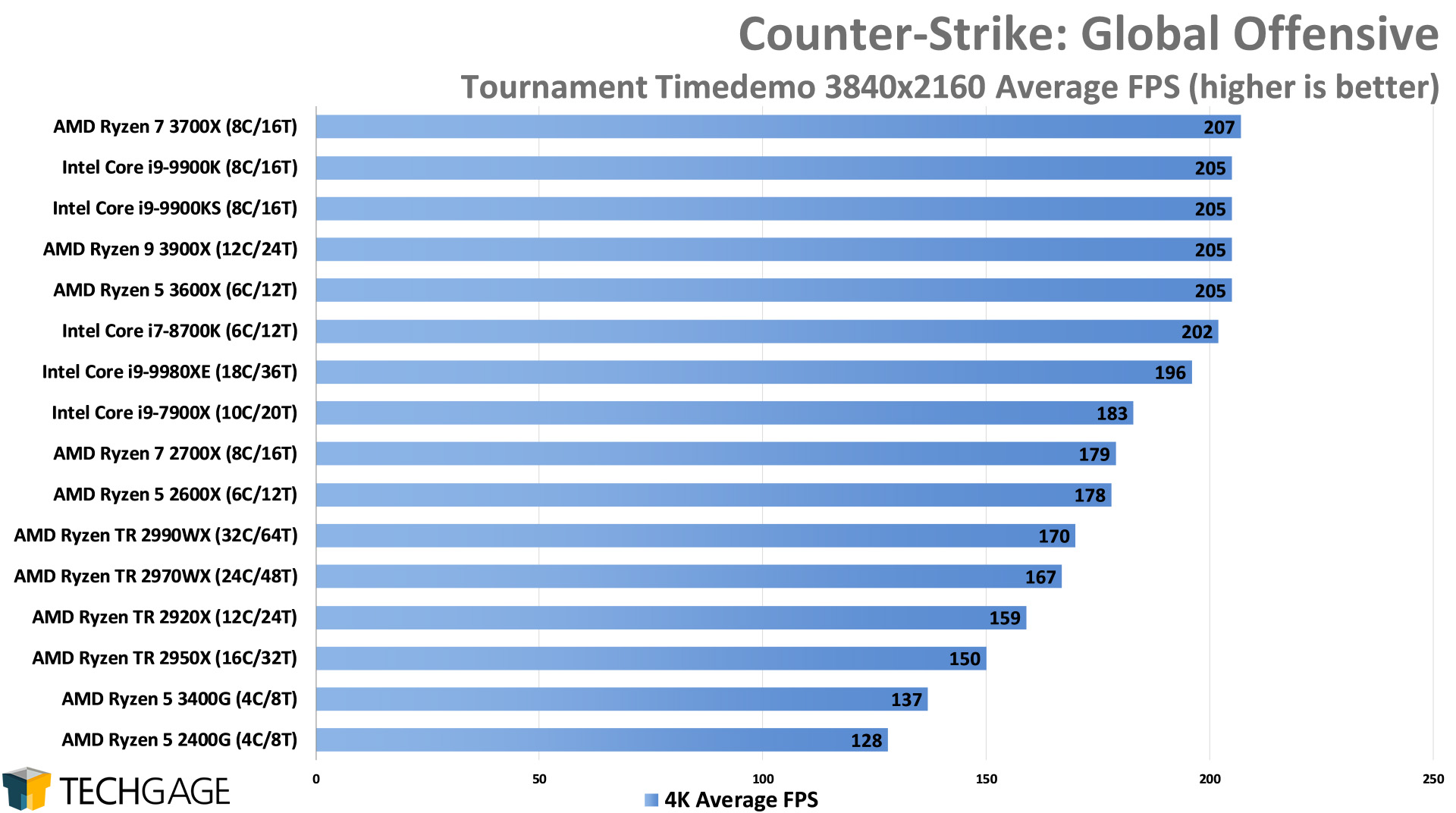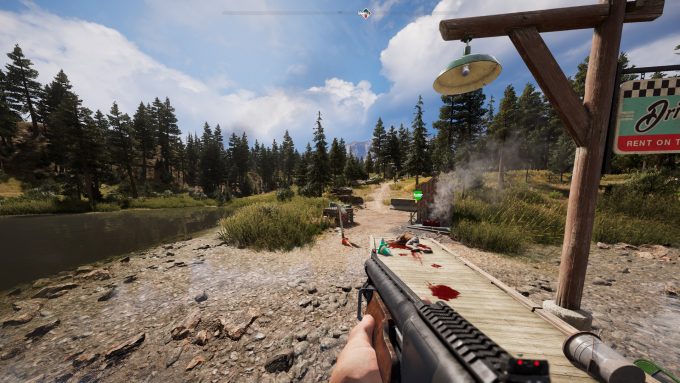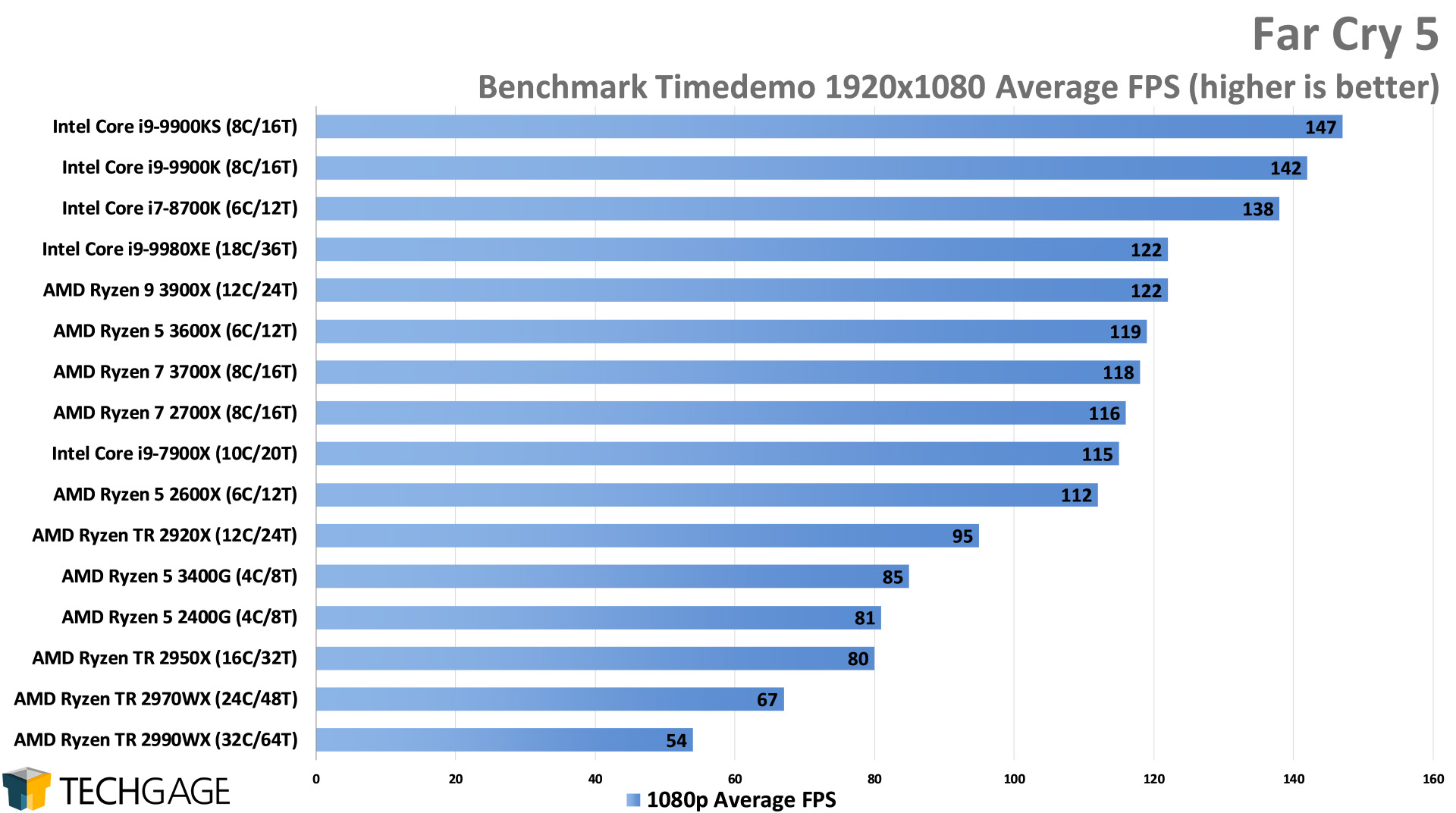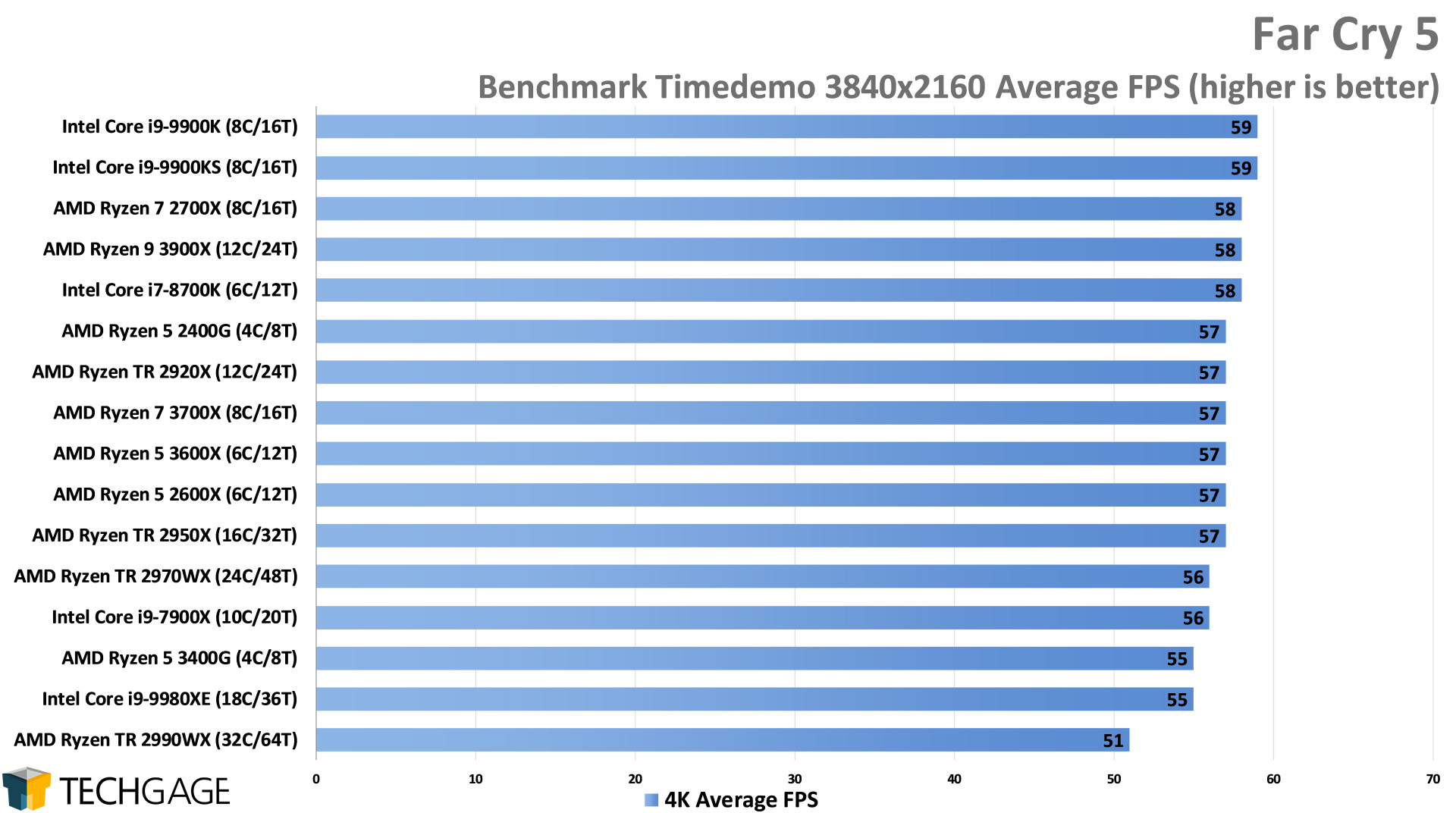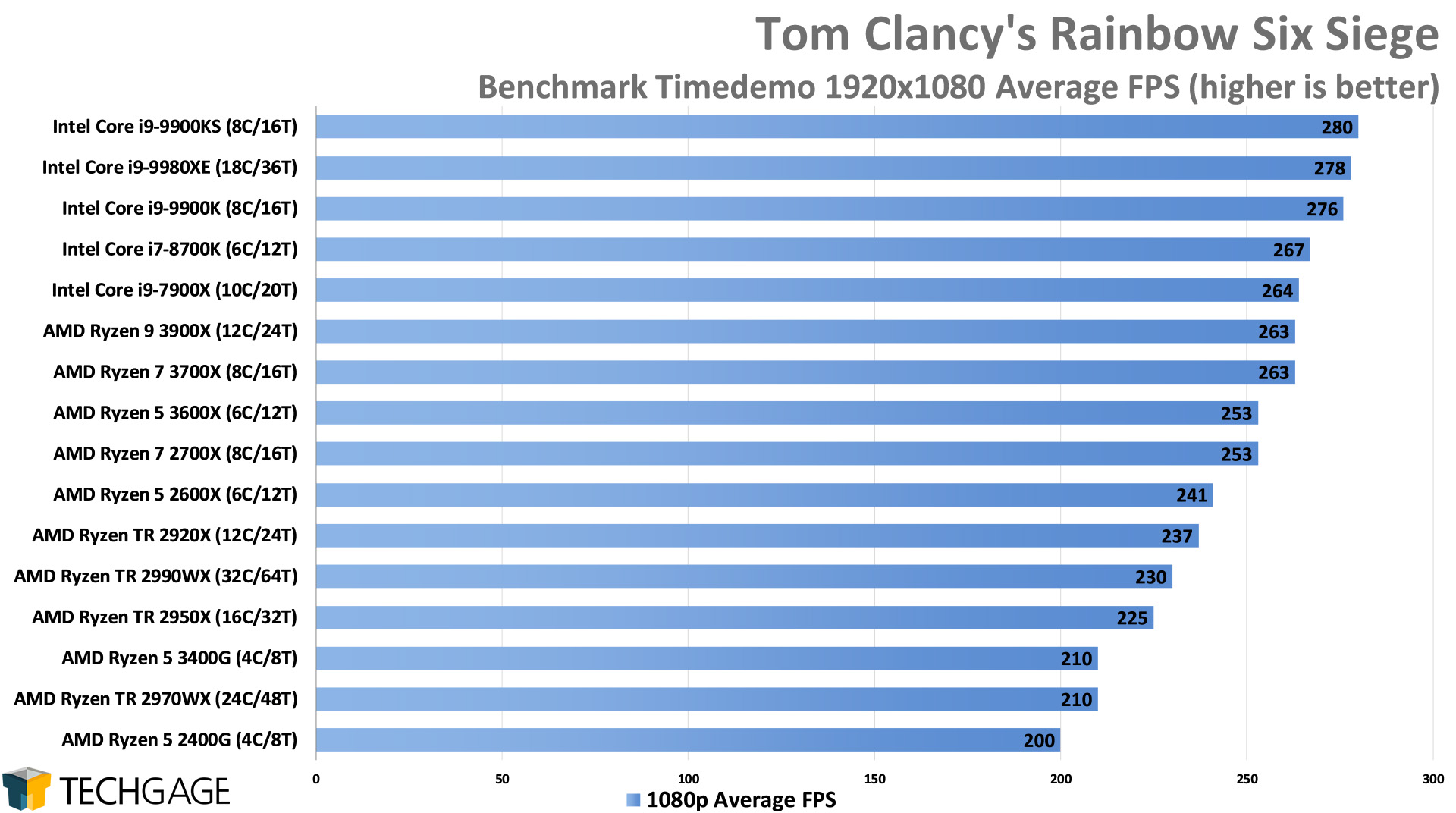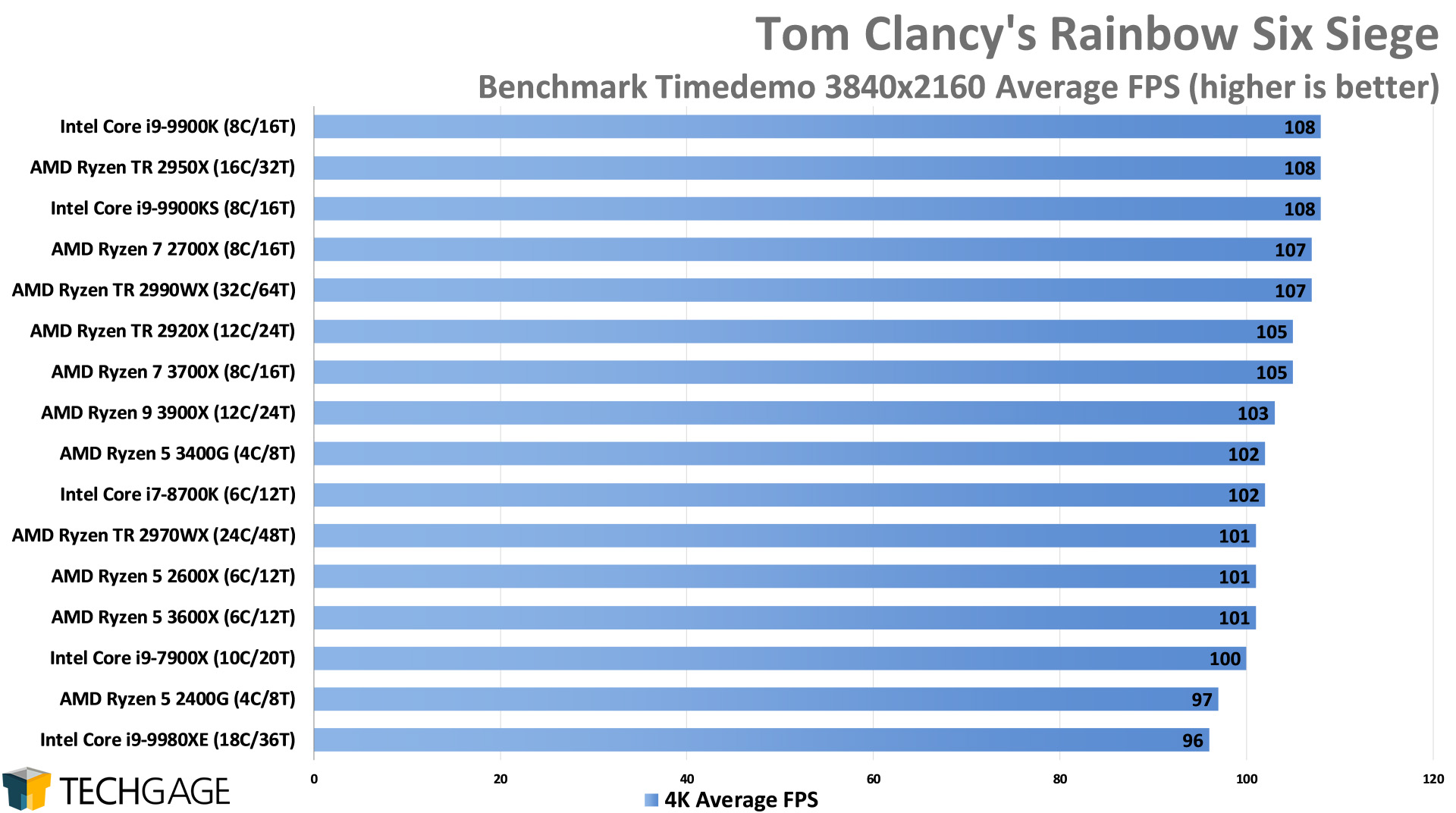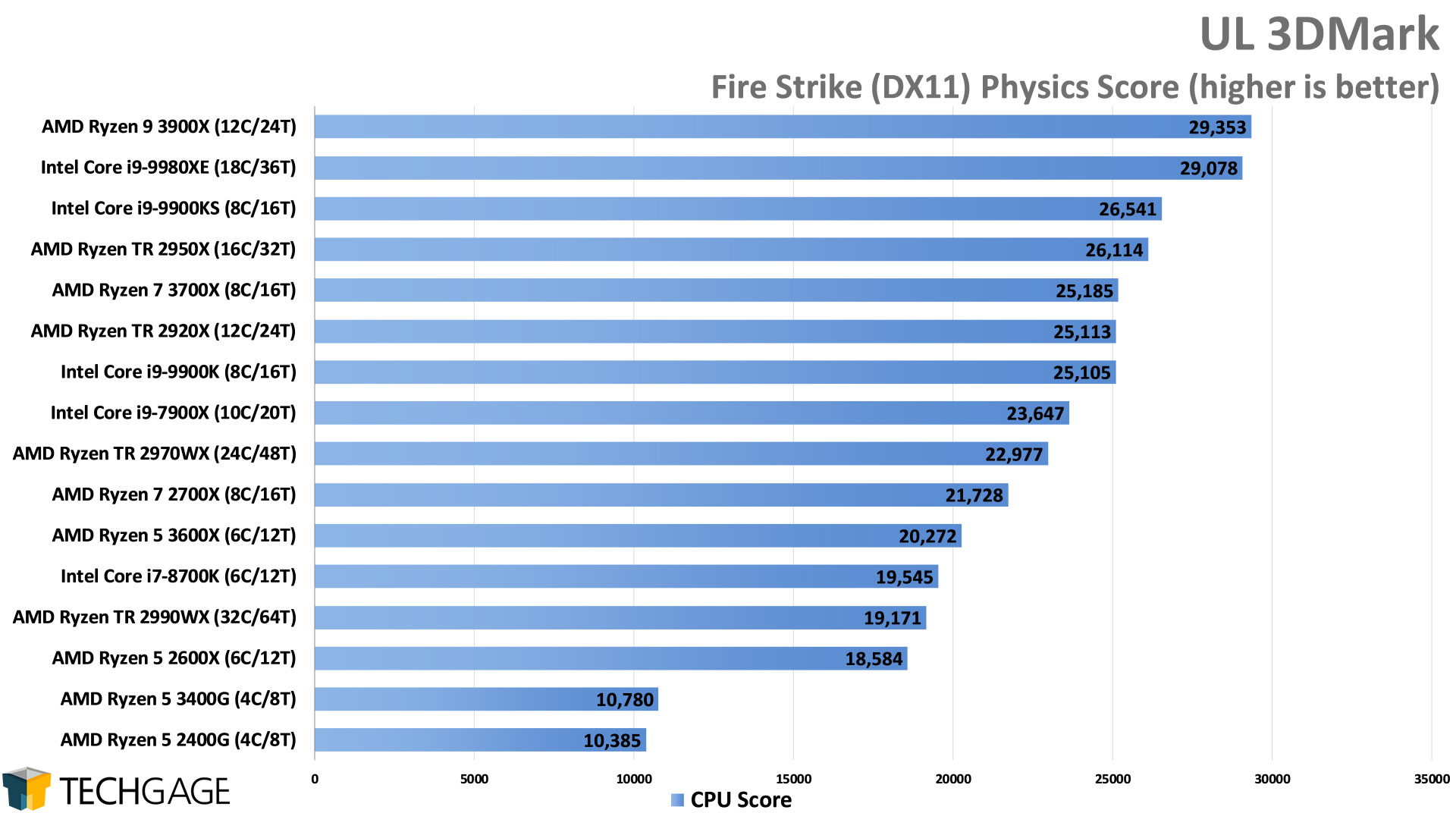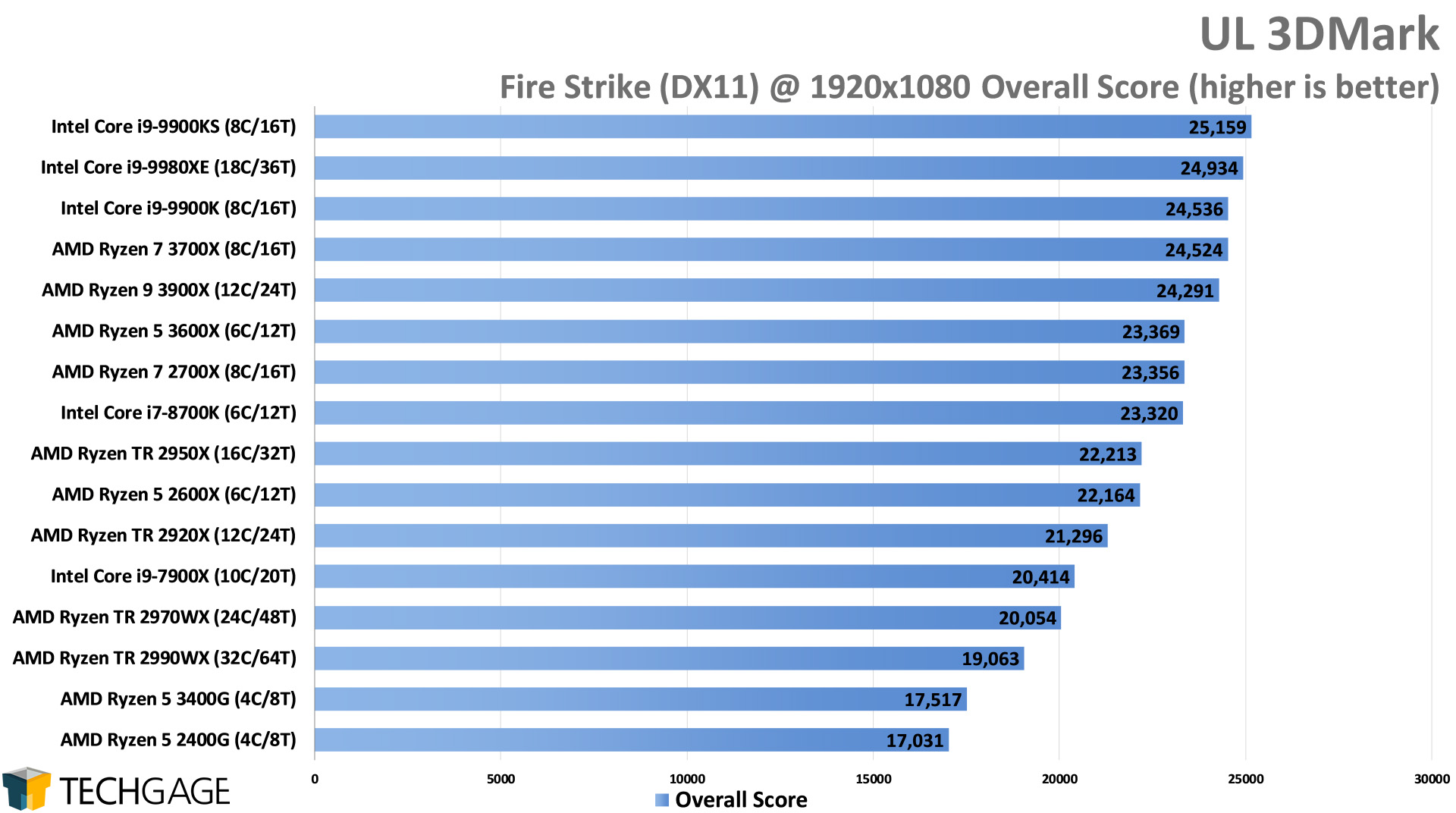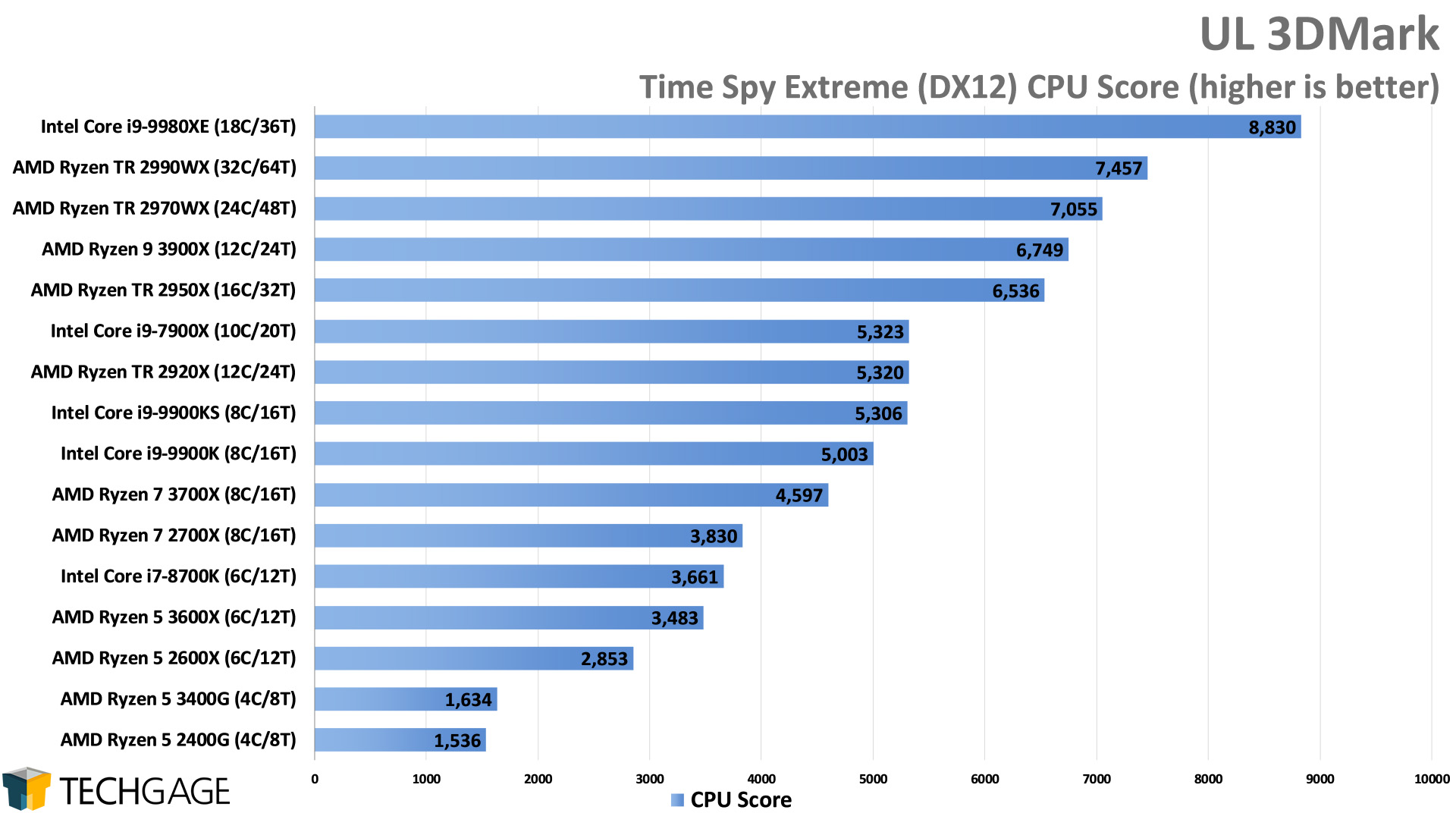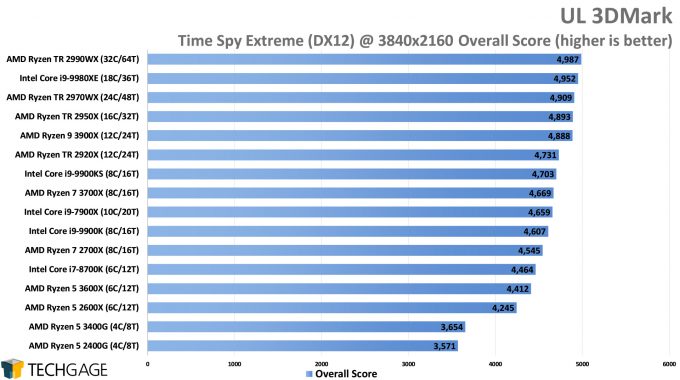- Qualcomm Launches Snapdragon 4 Gen 2 Mobile Platform
- AMD Launches Ryzen PRO 7000 Series Mobile & Desktop Platform
- Intel Launches Sleek Single-Slot Arc Pro A60 Workstation Graphics Card
- NVIDIA Announces Latest Ada Lovelace Additions: GeForce RTX 4060 Ti & RTX 4060
- Maxon Redshift With AMD Radeon GPU Rendering Support Now Available
Eight Cores At 5GHz: Intel Core i9-9900KS Review
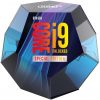
With competition in the CPU market proving to be fiercer than ever, Intel has decided to haul out some big guns. “Big guns” in this case refers to eight cores running at 5GHz a piece. This comes to us in the form of the Core i9-9900KS, and you can join us as we pit it against the rest of our collection in creator and gaming workloads.
Page 8 – Gaming: CS: GO, Far Cry 5 & R6 Siege At 1080p/4K, 3DMark
In recent years, we haven’t had a huge gaming focus in our CPU reviews, simply because we’ve had so much other testing to take care of, some of which isn’t tackled many other places (if anywhere else on a regular basis). But, with such a massive focus on gaming with this launch, we had to renew our focus, and thus, we have three games and a couple of synthetic benchmarks on-hand to help.
For our testing with real games, we’re sticking to testing with 1080p and 4K resolutions. If we’re going to benchmark games, it makes sense to us to run them at realistic resolutions, because a gain seen at 720p or lower quite literally doesn’t matter if there’s no differences seen at higher resolutions people actually play at.
Nonetheless, we’re up for suggestions on how to expand our gaming testing for CPU reviews. We already have a robust collection for our actual gaming GPU reviews, but when testing for CPUs, it can be hard to find good scaling. For this reason, we chose to start with two eSports titles here, as well as a high-end game, Far Cry 5. Synthetics will be shown after the real game results.
Counter-Strike: Global Offensive
When we first introduced CS: GO into our high-end FPS testing, it seemed obvious that the frame rate could become limited by the CPU at some point – at least at 1080p. We see an explicit example of this here, because the 9900KS managed to break past our previous average, and wound up a fair bit better. This isn’t to say that ~250 FPS is a lot better than ~235 FPS, but even so, the goal here is to find out which one is fastest, and that is definitely the 9900KS.
At higher resolutions, especially 4K, a lot of CPUs are going to find themselves performing almost identically to the rest of the stack at the top-end, but when you look at the bottom-half of that chart, it’s easy to see that you don’t want to skimp too much, either. This is at least the case with this kind of game, and other esports titles; more graphically complex titles may not scale quite the same.
Far Cry 5
Far Cry 5 is definitely not an esports title, but at lower resolutions, the CPU’s role can be big. It’s actually incredible just how much of a difference there is from the top to bottom at 1080p here, partly thanks to the fact that certain Threadripper chips do not handle the game too well (it’s not a great look when a 32-core falls behind a 4-core).
The 9900KS doesn’t know what the bottom looks like, because it’s getting some fresh air right at the top. At 4K, both it and the 9900K perform identically, although you could really say that about most of the results there. But, it’s important to note that these are not FPS over time or percentile charts, which may offer more insight. We hope to include such charts in the future, but we’re trying to figure out how to do it reliably without it taking an eternity (finding basic minimums is easy; finding percentiles requires even more in-depth testing to gain confidence.)
Tom Clancy’s Rainbow Six Siege
Siege is a good-looking game that can run at sky-high frame rates if you have the right hardware. At 4K, the differences are pretty minimal overall, but again at smaller resolutions, there can be some rather stark differences.
It’s important to note that frame rates like these are truly only useful for those who actually have monitors capable of displaying them, since 240Hz isn’t exactly common. 144Hz panels sure are, but in that case, every CPU seems to handle the game fine at above that frame rate. Again, over-time results might help paint a different picture, so we’re going to investigate that kind of result for the future.
Synthetic Benchmarks
Continuing what we’ve seen from these UL tests in the past, the DirectX 11 test seems to favor faster CPUs – not so much CPUs with more cores. But, if you happen to have a nice collection of really fast-performing cores, it can still help you out. Interestingly, the 3900X manages to take top CPU score billing here, while the 18-core 9980XE slots in just behind it. When looking at the overall result, the 9900KS breaks into the top.
In the DirectX 12 test, things change-up a lot, with core counts suddenly mattering more than before. Just as there is no guarantee that one creator-type application is going to perform like one similar to it, the same goes for gaming. Except with UL, it’s very much synthetic, so we only weigh its results so much.
Overall, in our simpler testing, we feel it’s obvious that the 9900KS is the one to beat, but that’s primarily important for those who game at lower resolutions, and especially those who think 60Hz is embarrassing and desire to go as far above that as possible.
Support our efforts! With ad revenue at an all-time low for written websites, we're relying more than ever on reader support to help us continue putting so much effort into this type of content. You can support us by becoming a Patron, or by using our Amazon shopping affiliate links listed through our articles. Thanks for your support!




